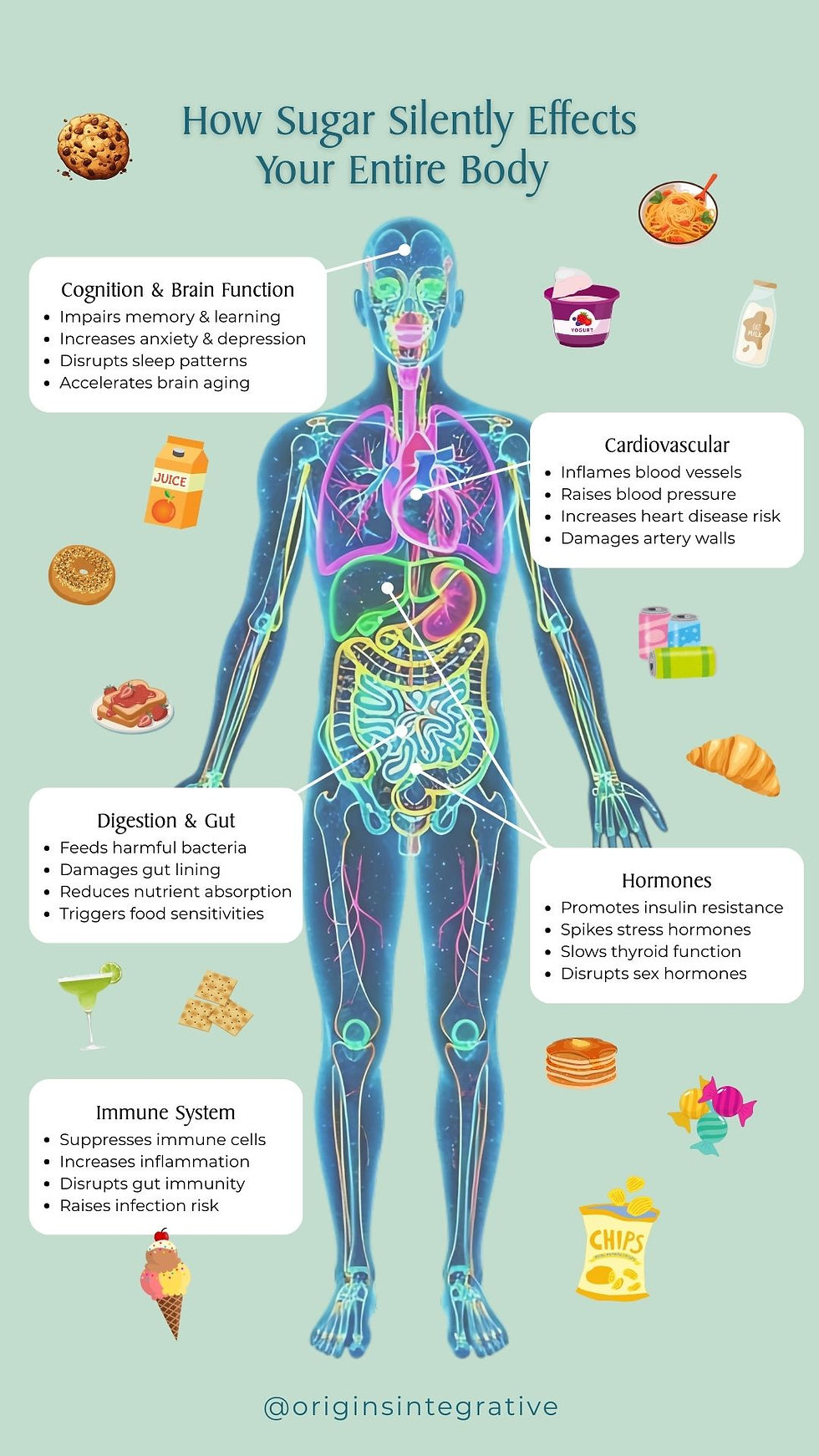Hypothyroidism
- Elisse Evans, ND

- Jan 30, 2020
- 2 min read
Updated: Jun 26, 2020

Have you noticed a change in your body that you can’t explain? Are you gaining weight faster than ever? Do you feel lost in your own thoughts, or foggy headed? Do your extremities always feel frozen, your skin extra dry, and your hair brittle?
These are just a few of the symptoms that may indicate an underactive thyroid, known as hypothyroidism, which is 5-10x more prevalent in women than men. Before jumping into hypothyroidism, it is important to discuss why the thyroid is crucial to our daily functions and what happens when things go wrong.
Why is the thyroid gland so important?
The thyroid gland is responsible for a wide variety of activities, but its main function is to regulate metabolism or how our body uses energy. In other words, the thyroid gland determines the rate at which our cells do their specific job! This can manifest in heart rate, weight maintenance, absorption of nutrients, or body temperature. The thyroid hormones play a huge role in every cell of the body! So when the thyroid doesn’t function properly, a whole slew of symptoms can manifest.
The Signs
The most common symptoms of hypothyroidism are:
Weight gain
Dry skin
Low mood
Hoarse voice
Muscle weakness
Cold extremities
Brain fog
Constipation
Thinning of eyebrows
Brittle hair
The Diagnoses
Often, when patients present with these symptoms, their doctor may consider thyroid dysfunction. Many times, they’ll order blood work to measure levels of Thyroid Stimulating Hormone, or TSH. However, we now know that just measuring this hormone is not an adequate test to diagnose thyroid disorders. Remember, you can’t always assume that the given reference ranges for various labs is equivalent to the optimal range for each individual. Sometimes, patients experiencing several hypothyrpid-associated symptoms will show “normal” (what the population averages are, not necessarily what is optimal) levels of TSH. This is why free T3 and free T4 levels should also be tested. Your thyroid produces the hormone free T4 which is then converted to free T3, the active form of thyroid hormone.
Hypothyroidism can be diagnosed by labs indicating an elevated TSH level as well as low levels of free T4. For the most in depth picture of what’s going on, you should ask your doctor to run Free T3, Free T4, reverse T3, thyroid antibodies and TSH labs.
How do we treat thyroid conditions?
There are a wide variety of approaches that can be taken based on the results of your tests! These include nutraceutical supplementation, dietary counseling, environmental assessment, medication management, and lifestyle modifications.
Schedule an appointment with us if you are experiencing any of these symptoms and suspect a thyroid disorder.
This blog is not intended to provide a health diagnosis, treat a medical condition, or provide medical advice. All content provided on this blog is for informational purposes. All posts and information provided within this blog is for informational and educational purposes only, and is not to be construed as medical advice or instruction. No action should be taken solely on the contents of this blog. Please consult your doctor or a qualified health professional on any matters regarding your health and well-being or on any opinions expressed within this blog.




Comments